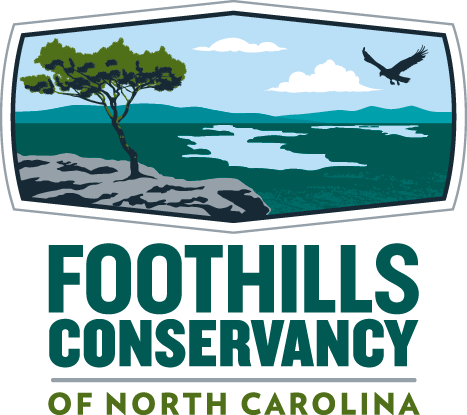
Conservation
Benefits of Conservation
Health and Happiness
Time outdoors leads to better fitness, less stress, improved attention, heightened creativity, and a sense of spiritual connection to one’s environment.
Thriving Local Economy
Conservation supports jobs in major industries like agriculture, forestry, tourism, and recreation. Strategic conservation also improves our communities.
Climate Solutions
Rising sea levels, shifting habitats, and extreme weather can threaten housing and our livelihood and leaves plants and animals struggling to adapt.
Food and Water
Conservation of farm and land where food is grown results in food security. Preservation of natural landscapes to store and filter water secures access and availability.
How Does It Work?
Conservation of Public Land
Foothills Conservancy partners with state and federal natural resource agencies, and other non-governmental organizations to expand existing state and federal park systems and forests, and build new parks and natural areas. We secure funding to purchase and transfer applicable land to the appropriate state or federal entity. These places are preserved so the public can enjoy them for recreation, scenery, wildlife observation, birding, hiking, hunting, and fishing. Foothills Conservancy has added more than 45,000 acres to state and local parks.
Funding for our conservation work is secured through private grants and foundations, state and federal natural resource trust funds, and private donations.
Conservation and Stewardship of Preserves
Foothills Conservancy owns and manages several thousand acres of preserve lands throughout our service area. Our land trust holds these properties in fee-simple ownership for permanent conservation and natural resource protection and enhancement. Benefits of these lands are watershed protection, sensitive habitat conservation, scenic open space protection, and occasional recreational access.
Conservation of Private Land
A conservation (or agricultural) easement is one option available to landowners who want to protect their land and its resources forever. This is a voluntary, legal agreement between a landowner and Foothills Conservancy. If state funding is involved, the agreement may be between the landowner and the State of North Carolina, with Foothills Conservancy assisting the project and stewarding the land. Under the agreement, the landowner conveys certain rights to the conservancy (or state) to protect the primary conservation values of the land, such as the ability to intensively subdivide or develop the land. Landowners retain ownership of the property and a range of reserved rights tailored to meet the landowner’s conservation and agricultural goals.
Does Your Land Qualify?
In North Carolina, if you donate a conservation agreement, sell land at a bargain price, or donate property that provides a significant public benefit, you may qualify for state and federal tax benefits. Providing a public benefit is not the same as providing public access; your land can remain in your hands and closed to the public. Your land may qualify if it serves at least one of the following purposes:
Promotes fish and wildlife conservation
Protects water quality
Protects historic property
Provides a scenic view
Serves other public benefits as outlined by the state








